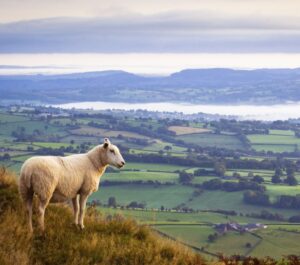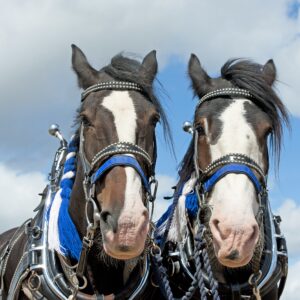 I like writing about Regency England for many reasons, not the least of which is that it was the last period in English history when the majority of the population lived on the land. After 1850, the balance tipped into the cities, despite disastrous results (at least for a time) for many in terms of life expectancy, infant mortality, and standard of living.
I like writing about Regency England for many reasons, not the least of which is that it was the last period in English history when the majority of the population lived on the land. After 1850, the balance tipped into the cities, despite disastrous results (at least for a time) for many in terms of life expectancy, infant mortality, and standard of living.
Most of my stories remain on the greener side of modern history, though by the Regency years, the British agricultural revolution was well under way (and without which, no industrial revolution would have been possible). As a species we started farming, oh, bout 12,000 years ago, and the basic plan–stick a seed in dirt, wait for it to grow into a plant, harvest the results, survive another winter–haven’t changed throughout the millennia.
 People like Jethro Tull (1674-1741) and Arthur Young (1741-1820) looked at where farming was going well (French and Italian vineyards, and Northern Belgium for example), and where it struggled (much of England), and capitalized on their observations with improved methodology or technology. Tull gets credit for inventing the English version of the seed drill, which planted a seed at the correct depth, and covered it with tilled soil, in easily watered and weeded rows, and for creating a horse-drawn hoe, that aerated soil and dug up weeds.
People like Jethro Tull (1674-1741) and Arthur Young (1741-1820) looked at where farming was going well (French and Italian vineyards, and Northern Belgium for example), and where it struggled (much of England), and capitalized on their observations with improved methodology or technology. Tull gets credit for inventing the English version of the seed drill, which planted a seed at the correct depth, and covered it with tilled soil, in easily watered and weeded rows, and for creating a horse-drawn hoe, that aerated soil and dug up weeds.
Arthur Young was a proponent of a the Norfolk crop rotation system (borrowed by Charles Townsend from the Belgians), that did away with the an older system requiring a fallow year. By planting wheat/turnips/barley/clover in succession, the Norfolk system allowed livestock to be bred year round (turnips and clover were fodder crops), and included a legume to restore the soil’s nitrogen.
 By now you are wondering, “Grace, what are you going on about?”
By now you are wondering, “Grace, what are you going on about?”
Crop rotation in particular has been a useful concept to me. I knew when I quit the day job that my word counts were unlikely to increase just because I had more time to write. That day job, by giving my mind very different material to focus on and allowing my writer’s imagination to rest in clover for a bit, actually boosted the efficiency of my writing.
Traveling, when I relieve myself of any creative expectations, boosts my writing. A hiatus from the blog, a big housekeeping project… if I view these writing “down times” as crop rotation (now I will grow a more pleasant aesthetic for the living room instead of a new scene for Lord Julian), I see them as constructive. Other agricultural metaphors also apply to my writing–proper drainage, fences and gates, composting, pruning, aeration, irrigation, grazing, harvesting, weeding…
 That basic idea of crop rotation–change of purpose is refreshing in itself–is central to how I manage my creativity and my life. In this dreary winter month, are there any gardening or farming metaphors that have helped keep you on track or moving forward in the difficult times?
That basic idea of crop rotation–change of purpose is refreshing in itself–is central to how I manage my creativity and my life. In this dreary winter month, are there any gardening or farming metaphors that have helped keep you on track or moving forward in the difficult times?
And it’s time to start my ARC list for A Gentleman in Pursuit of Truth, the fourth Lord Julian mystery. Email me at [email protected] and let me know what device you read on if you’d like a copy. (And yes, his lordship will get a final cover any day now!)







Totally a “city girl” (well, maybe small city/suburban is more accurate) here so no farming/gardening metaphors. I don’t think I think of anything with metaphors. When times are difficult, I just tell myself that “this, too, shall pass” and get through it as best I can. I suppose that could be a farming metaphor if applied to things like a current drought, or a current too wet season, or something bad that’s hurting the farm, though. Darn it, you’ve given me something to think about again and I’m not really the introspective type. But I do enjoy reading your thoughts every week.
I haven’t used any farming or gardening metaphors for my life, but I probably could apply them if I tried. Crop rotation (multiple times a day) since my neck and back force me to take frequent breaks or make changes in activities frequently. I’m sure taking the dog for a walk or tossing a ball or frisbee for him to burn off energy could be compared to some sort of necessary garden chore that must be done so that a crop grows well. I’ve never really thought about daily life this way.
Pingback: Of Ploughs, Pigs, and Pursuits | Grace Burrowes | I believe in love.
To everything there is a season…
Whenever my brain is at a standstill, getting up & moving my body seems to jumpstart matters. A major brain freeze has been known to result in a weekend-long combat clean + organize. My latest conundrum had me building wire shelves on wheels to make more efficient use of an under utilized closet. Another brain fog resulted in 6 lawn-sized bags of donations for my favorite charity.
Mention of Norfolk brings back the 4 years I lived in that county while stationed on an RAF base. Besides dodging combine harvesters in right hand drive cars on narrow roads bounded by nigh impenetrable hedges during recalls, my seasons were marked by the odorific spreading of manure via spray tanks & the burning of chaff. The latter resulted in some unexpected IFR flying on a VFR day as the smoke settled in thicker than the local sea fog. “Oo arr, gerrof moi lan’,” as the locals used to growl if one strayed from the public footpath.
I live in Minnesota where sunrise is 7:30am and sunset is 4:30pm on our shortest winter days. My husband and I discovered that a short trip in January to visit my sister and her family in Arizona, gives us a hit of sunlight that keeps us going until our Minnesota days are longer and brighter. It’s like being a plant soaking up the sun and converting that sunlight into energy.
Most of my life has been spent in various suburbs which have managed to be in reach of country. Forest preserves and fairly rapidly vanishing farms or ranch land. Brief stints in or near the heart of a few cities. I miss the vegetable gardens I grew up with a lot, especially the tomatoes!
I’m afraid my number one metaphor is weeding and I need to do a great deal more of it. The email takes a ridiculous amount of time, but I also enjoy much of it, like yours especially, Grace!
It’s the piles of paper that are my truly worst weeds… This has given me new resolve to dig in! When I do, that really clears the cobwebs from my brain.
Oh, I love the comment about sun-seeking!
This is a four-season former agricultural area with lots of smaller scale operations. But the first of the year’s calves have dropped. Next thing I’ll notice is dormant spray in the orchards, and an ad for asparagus pickers, although mostly they’re migrants now. Blossoms. Apples, cherries mostly, but a few apricots and peaches. Rhubarb pies. First cut of alfalfa and strawberries and so it goes. “This too shall pass?”
”While the earth remaineth, seedtime and harvest, and cold and heat, and summer and winter, and day and night shall not cease.“. Genesis 8:22 KJV
Dear Grace,
I just finished reading Daniel’s True Desire. I have liked all of your books that I have managed to read but Daniel’s “rotten boys” may remain my all time favorite. You captured their spirits in a delightfully meaningful way. As a long time teacher I smiled along with your older characters. I appreciated Daniel’s struggles, envied his sensible and powerful connections and rejoiced that you chose a reasonable but rebellious solution. Perhaps more parents and teachers should read this. Bravo! Thank you for so thoughtfully writing Daniel’s True Desire.
Winter is fallow time for me, with dog walks, the wonderful southwest light, & caring for multiple houseplants to keep me from drying up completely. Then everything comes back to life again in the spring.
I also use the concept of fallow in my life, to try to keep myself productive I need time to regenerate. To the same end I crop rotate duties to try not to burn out to begin with, but I haven’t perfected the self-awareness to rotate reliably before it is too late.
These words are the exact words I needed to read today! I am familiar with crop rotation and pasture management but never thought to apply it to myself. It occurs to me that I have overgrazed my pastures and planted beans far too many years in a row. I am struggling to prioritize my life and this might help. It feels very gentle and patient. Thank you!
This post is quite timely for me. I set some goals for myself for this winter, with hopefully the result being able to move on to other goals/projects come spring and summer. Multiple things have stuck a stick in my spokes the past few years trying to set the same goals. But one of the things that keeps me from staying on task is daily living, basic necessities and my own physical limitations. If I throw myself into some area whether special goal or daily necessity I need to be aware of my own strength. I can’t be in two places at one time so I will try to do everything I can getting ahead on stuff like cooking and cleaning one day so the next day I can disappear into the basement and work on the special goals. And then take a day to get to the gym and run errands, and those days end up being a mental health break because besides those few things, I just don’t have the energy to do anything else. If feels like I’m procrastinating some days. But it’s kind of like planting a cover crop. If I see it that way, I feel less guilty.
We grew up in cities, but surrounded by farming communities, farming states, with farm reports on the news when we were kids. We’re always cognizant of what the weather is doing in relationship to the farmers. So your crop rotation history and farming revolution information really resonates. Unfortunately the soil in most farming communities would be healthier if they returned to a four crop system and didn’t rely on chemicals to force the same crop to grow in the same soil every year. But maybe there’s a metaphor for that too.